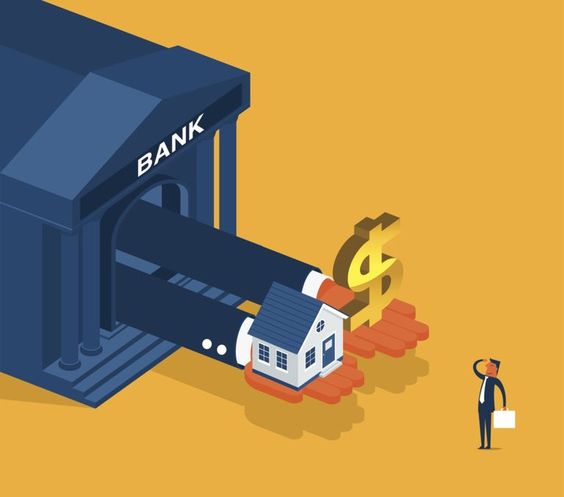Embarking on a construction or renovation project often necessitates taking out a specialized type of loan known as a construction loan. The key to managing this process efficiently lies in understanding construction loan rates—how they work, what influences them, and how they compare to other financing options. In this extensive guide, we will explore the nuances of construction loan rates, delve into their types, factors affecting them, and provide practical tips for securing the best rates. Additionally, we’ll examine the pros and cons of construction loans to help you make an informed decision.

Table Of Content
- What Are Construction Loan Rates?
- Types of Construction Loans
- Factors Affecting Construction Loan Rates
- How to Get the Best Construction Loan Rates
- Common Costs Associated with Construction Loans
- Pros and Cons of Construction Loans
- Frequently Asked Questions (FAQs)
- 1. What are construction loan rates?
- 2. How do construction loan rates compare to traditional mortgage rates?
- 3. Can I negotiate construction loan rates?
- 4. What is a construction-to-permanent loan?
- 5. What factors affect construction loan rates?
- 6. Are there any fees associated with construction loans?
- 7. What should I consider when choosing a construction loan?
- Conclusion
What Are Construction Loan Rates?
Construction loan rates refer to the interest rates applied to loans used for financing the construction of new buildings or substantial renovations. These rates can significantly impact the overall cost of your project, making it essential to understand how they are determined and managed. Unlike traditional mortgages that are used to purchase existing homes, construction loans are designed specifically for the construction phase and often come with different terms and conditions.
Types of Construction Loans
Understanding the various types of construction loans can help you choose the right option for your project. Each type has its own set of characteristics and construction loan rates:
1. Traditional Construction Loans
Traditional construction loans are short-term loans intended to cover the costs of building a new home or making significant renovations. They typically feature higher interest rates compared to conventional mortgages. During the construction period, borrowers usually make interest-only payments on the amount drawn. Once construction is completed, the loan is either paid off or converted into a permanent mortgage.
2. Construction-to-Permanent Loans
A construction-to-permanent loan merges the construction loan and the permanent mortgage into a single loan. This type of loan covers both the construction phase and the long-term financing. Upon completion of the construction, the loan transitions into a permanent mortgage, often with a fixed or adjustable interest rate. This option can be more convenient as it eliminates the need for two separate loans and the associated fees.
3. Renovation Loans
Renovation loans are tailored for significant improvements or repairs to an existing property. These loans can cover various aspects of renovation, from minor updates to major overhauls. The construction loan rates for renovation loans may differ from those for new construction, often influenced by the scope and scale of the project.
Factors Affecting Construction Loan Rates
Several factors influence construction loan rates, making it essential to understand how each one impacts your loan’s cost and terms:
1. Loan Type
The type of construction loan you select can greatly affect the interest rate. Traditional construction loans typically have higher rates than construction-to-permanent loans due to their short-term nature and higher risk. For an in-depth look at different loan types, consult resources such as Bankrate and NerdWallet.
2. Credit Score
Your credit score is a major determinant of construction loan rates. A higher credit score generally results in lower interest rates, as it reflects a lower risk to lenders. Improving your credit score before applying can significantly impact your loan’s cost. For tips on boosting your credit score, visit Experian or TransUnion.
3. Down Payment
The size of your down payment influences construction loan rates. A larger down payment reduces the lender’s risk and can lead to a lower interest rate. Typically, a down payment of 20% or more is required for construction loans, though requirements can vary.
4. Loan Term
The term of your construction loan affects the interest rate. Shorter-term loans may have higher monthly payments but lower interest rates, while longer-term loans often have lower monthly payments but higher overall rates. Consider your financial situation and project timeline when choosing a loan term.
5. Lender
Different lenders offer varying construction loan rates. It is crucial to shop around and compare offers from multiple lenders to find the best rate. Use comparison tools on websites like LendingTree and SoFi to evaluate different lenders’ rates and terms.
6. Market Conditions
Economic conditions and market trends influence construction loan rates. Interest rates fluctuate based on factors such as inflation, employment rates, and Federal Reserve policies. Monitoring these conditions can help you time your loan application for better rates.
How to Get the Best Construction Loan Rates

Securing the best construction loan rates involves careful preparation and strategic planning. Follow these steps to maximize your chances of obtaining favorable terms:
1. Improve Your Credit Score
A higher credit score can lead to lower construction loan rates. Focus on paying off existing debts, making timely payments, and checking your credit report for errors. Use resources like Credit Karma for free credit monitoring and improvement tips.
2. Save for a Larger Down Payment
A substantial down payment can lower your interest rate and improve your loan terms. Aim to save at least 20% of the total construction cost to potentially secure better rates.
3. Shop Around for Lenders
Comparing offers from multiple lenders is essential to finding the best construction loan rates. Utilize comparison tools on sites like Zillow and Rocket Mortgage to evaluate various lenders’ rates and terms.
4. Consider Fixed vs. Adjustable Rates
Construction loan rates can be either fixed or adjustable. Fixed rates remain constant throughout the loan term, providing predictable monthly payments. Adjustable rates may start lower but can fluctuate based on market conditions. Evaluate which type of rate aligns with your financial goals and project needs.
5. Negotiate Terms
Don’t hesitate to negotiate with lenders to secure the best possible rate and terms. Strong credit and a significant down payment can increase your leverage during negotiations.
6. Review Loan Terms Carefully
Thoroughly review the loan terms, including interest rates, fees, repayment schedules, and penalties, before accepting any offer. Resources like The Balance offer detailed information on loan comparison and analysis.
Common Costs Associated with Construction Loans
In addition to construction loan rates, several other costs are associated with construction loans:
1. Origination Fees
Origination fees are charged by lenders for processing your loan application and typically range from 1% to 3% of the loan amount. These fees are often added to the loan balance.
2. Appraisal Fees
An appraisal is required to determine the value of the property after construction is complete. Appraisal fees vary based on the project’s size and complexity.
3. Inspection Fees
Periodic inspections may be required during the construction phase to ensure the work is progressing as planned. Inspection fees cover the cost of these evaluations.
4. Closing Costs
Closing costs include various fees associated with finalizing your loan, such as title insurance, recording fees, and attorney fees. These costs can add up and should be factored into your budget.
5. Interest-Only Payments
During the construction period, you may be required to make interest-only payments on the drawn amount. These payments are based on the amount disbursed to date and can contribute to the overall borrowing cost.
Pros and Cons of Construction Loans

Pros
- Flexible Financing Options: Construction loans provide financing specifically tailored for building new structures or making significant renovations, offering flexibility to match various project needs.
- Access to Funds During Construction: These loans allow you to access funds in stages as construction progresses, providing necessary liquidity throughout the building process.
- Potential for Lower Rates with Larger Down Payments: Making a substantial down payment can result in lower interest rates and better loan terms, reducing the overall cost of borrowing.
- Convenience of Construction-to-Permanent Loans: Combining construction and permanent financing into a single loan simplifies the process, potentially reducing fees and paperwork.
- Opportunity to Build Custom Homes: Construction loans enable you to build a custom home tailored to your preferences and specifications, offering greater control over design and materials.
Cons
- Higher Interest Rates: Construction loan rates are typically higher than traditional mortgage rates due to the short-term nature and increased risk associated with construction projects.
- Short-Term Nature: Traditional construction loans are short-term, which means you may need to refinance or secure permanent financing once the construction is complete, potentially leading to additional costs.
- Additional Fees: Construction loans often come with various fees, including origination fees, appraisal fees, and inspection fees, which can add to the overall cost of the project.
- Complex Application Process: The application process for construction loans can be more complex compared to traditional mortgages, requiring detailed project plans, budgets, and financial documentation.
- Impact on Credit Score: Taking out a construction loan can impact your credit score, particularly if payments are missed or late. It’s essential to maintain timely payments to protect your credit profile.
Frequently Asked Questions (FAQs)
1. What are construction loan rates?
Construction loan rates are the interest rates applied to loans used for financing the construction of new buildings or significant renovations. These rates can vary based on several factors, including the loan type, credit score, and lender.
2. How do construction loan rates compare to traditional mortgage rates?
Construction loan rates are generally higher than traditional mortgage rates due to their short-term nature and higher risk. Rates can fluctuate based on market conditions and borrower qualifications.
3. Can I negotiate construction loan rates?
Yes, you can negotiate construction loan rates with lenders. Strong credit and a substantial down payment can improve your chances of obtaining favorable rates.
4. What is a construction-to-permanent loan?
A construction-to-permanent loan combines construction financing with long-term mortgage financing. It covers both the construction phase and permanent mortgage, transitioning into a mortgage once construction is complete.
5. What factors affect construction loan rates?
Factors influencing construction loan rates include loan type, credit score, down payment, loan term, lender, and market conditions.
6. Are there any fees associated with construction loans?
Yes, common fees include origination fees, appraisal fees, inspection fees, closing costs, and interest-only payments during the construction phase.
7. What should I consider when choosing a construction loan?
Consider factors such as interest rates, loan terms, fees, down payment requirements, and the type of loan that best suits your project and financial situation.
Conclusion
Navigating construction loan rates can be complex, but understanding the various factors involved can help you make informed decisions and manage your project efficiently. By familiarizing yourself with different loan types, improving your credit score, and comparing offers from multiple lenders, you can secure favorable rates and terms for your construction or renovation project.
For more information on construction loan rates and related financial topics, explore resources such as The Mortgage Reports and Consumer Financial Protection Bureau. These sites offer valuable insights and tools to help you make informed decisions about your financing options.
With careful planning and a thorough understanding of construction loan rates, you can successfully navigate the complexities of construction financing and achieve your project goals within budget




